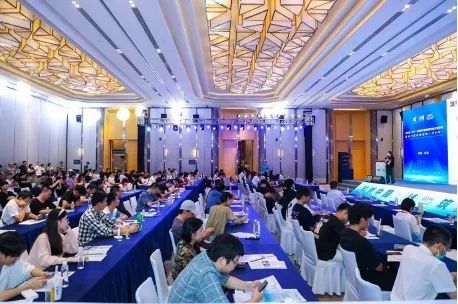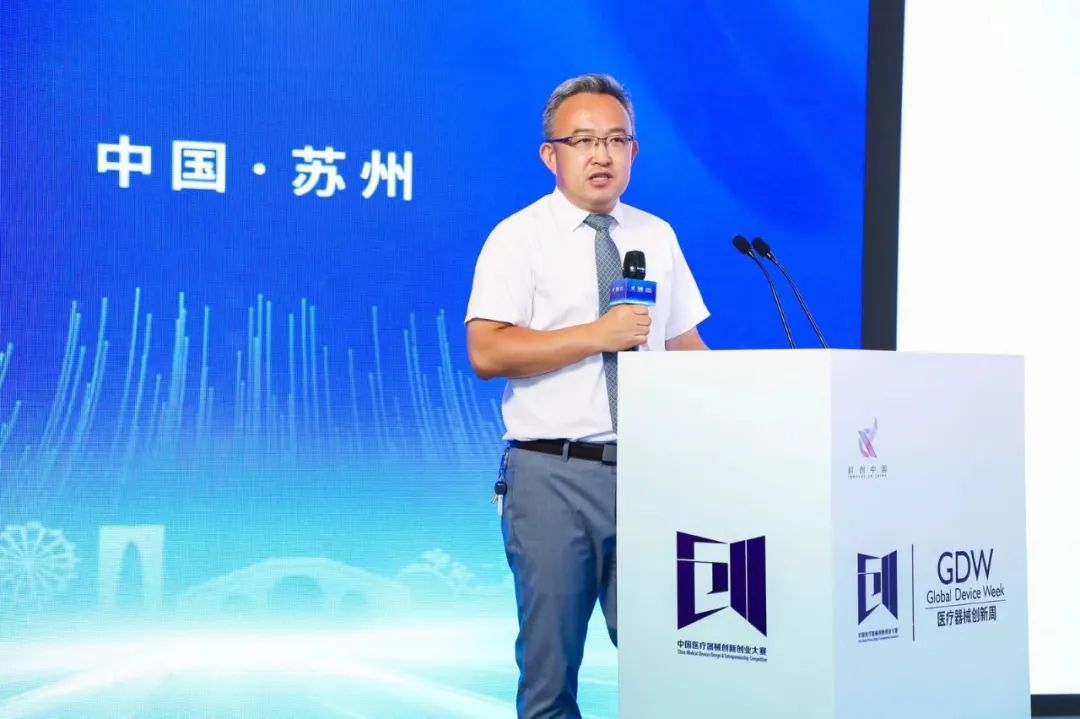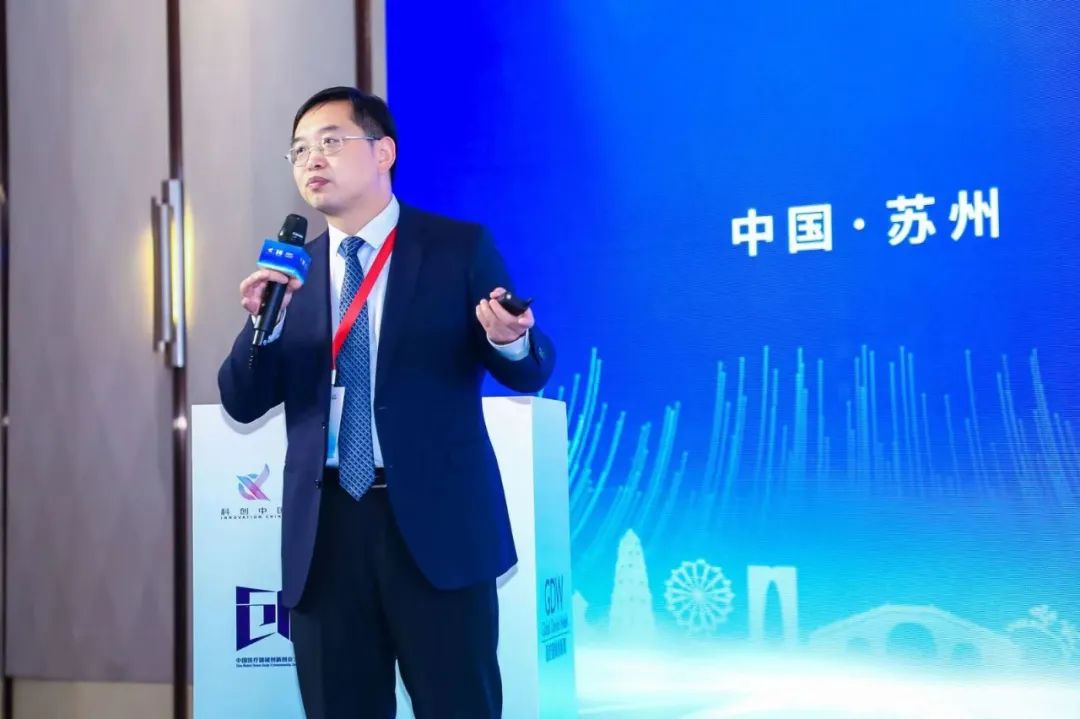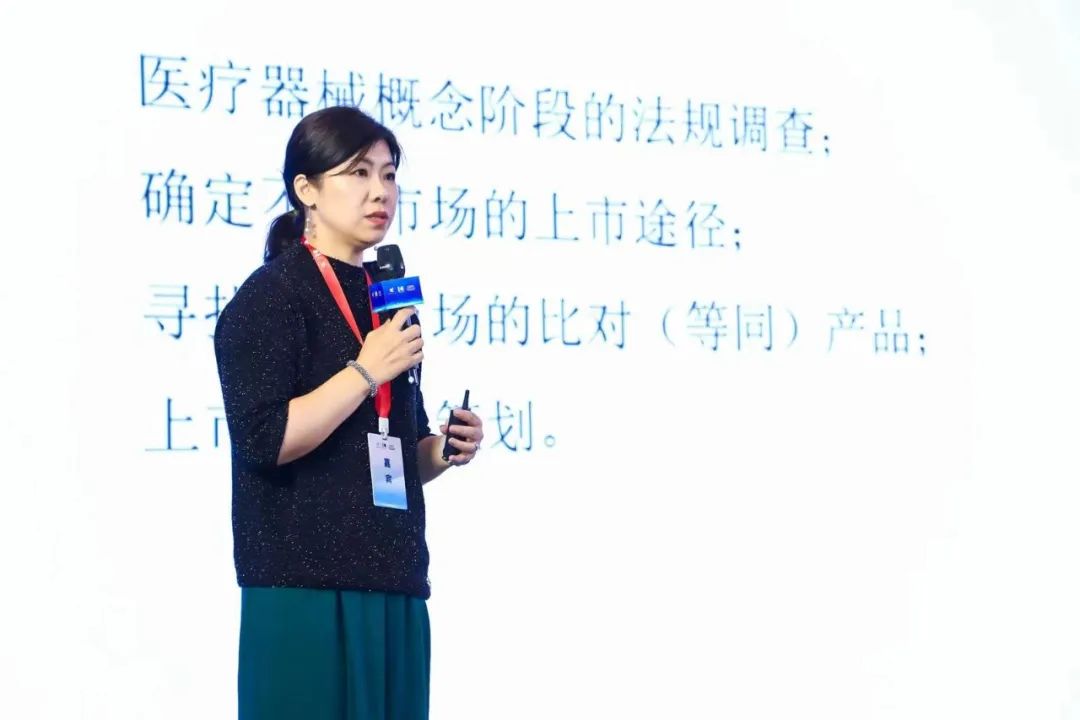The China Transformation Medicine and Innovation Service Forum 2023 (TMIS2023) kicked off in Suzhou on September 11 and attracted the enthusiastic participation of numerous industry experts and enterprise representatives. With a focus on transformation medicine and innovation services, such as the registration of innovative medical devices, preclinical large animal experiments and the introduction of global strategies during the research and development phase, TMIS2023 provided industry practitioners with unique insights and inspiration.

Three Factors for Innovative Medical Device Applications
Li Qiang, General Manager of Guangzhou Jiutai Medicine & Medical Device Technology Co., Ltd., analyzed the numerous advantages of innovative medical device applications: enterprises can obtain priority processing and the opportunity for regular communication with the National Medical Products Administration. Innovative medical devices can enjoy favorable policies such as exemptions from inclusion in the centralized procurement. However, the government intervenes in advance in work related to innovative medical devices and does not lower the criteria.

Li Qiang, General Manager of Guangzhou Jiutai Medicine & Medical Device Technology Co., Ltd.
Three basic elements should be first possessed for innovative medical device applications: first, the core invention patent must be novel and creative; second, the product’s basic prototype, intended use and components must be very clear, with performance indicators determined and the finished product research process in line with system requirements; third, the product must have significant clinical value and marked differences from existing treatment methods.
There are four main reasons for the failure to obtain approval for innovative medical devices: 1. Failure to prove the core technology of the patented product; 2. Unclear operating principles of the product, making it impossible to determine whether it is pioneering in the country; 3. Lack of basic research data, with the product not finalized; and 4. Lack of controlled experiments in clinical studies, resulting in insufficient clinical data.
Importance of Preclinical Large Animal Experiments for Medical Devices
Dr. Wei Xufeng of Jiangsu Meifengli Medical Technology Co., Ltd. explained the standardized operation of preclinical large animal experiments by analyzing FDA documents. For example, the FDA recommends that the animal study protocol follow current veterinary standards of care appropriate for the device and procedure. The study director (SD) should work with veterinary staff at the testing facility to develop pre-specified plans to monitor for and manage anticipated adverse events at each phase of the study.

Dr. Wei Xufeng of Jiangsu Meifengli Medical Technology Co., Ltd.
Preclinical large animal experiments are an indispensable part of the innovation, design, development and registration of medical devices. To ensure the smooth progress of product clinical trials, registration and subsequent marketing, large animal experiments for medical devices must be conducted on pigs, sheep, monkeys and other large animals by relevant clinicians in a manner identical to human surgery, so as to enable effective evaluation of the safety and effectiveness of medical device products as well as the convenience and reasonableness of doctors’ operation.
Visible shortcoming: Inadequate hardware conditions in most large animal experimental laboratories. Most laboratories are temporary, non-standardized and without full-time staff or dedicated place and equipment (many experiments are conducted in operating rooms for human surgery), which do not meet the standards for animal experiments
Invisible shortcoming: Technologies and specifications for large animal experiments. Most large animal experiments in the country lack qualified researchers, without specifications for the experimental process and quality control; animal experimental models are unstable, with high failure and mortality rates, and the data recording is also not standardized.
Introduction of Global Access Strategies from the Research and Development Phase, to Accelerate Product Marketing
Hong Xiaoming, Chairwoman of Mid-Link Biomedical Technology Group Co., Ltd., emphasized that what is the most crucial for medical device products’ success in getting applied is obtaining registration certificates, even applying for registration and obtaining certificates worldwide. This is an important milestone whether for the lifecycle management of products or for enterprises’ financing and valuation, after which, enterprises will enter a new sales-dominated commercialization phase. Therefore, swift certificate obtainment is crucial for medical device products. The first innovative product in the market is not determined by who started researching it first but by who obtains the registration certificate first.

Hong Xiaoming, Chairwoman of Mid-Link Biomedical Technology Group Co., Ltd.
She stated that it’s important to focus on the first-mover advantage and introduce regulatory research and global access strategies in the conceptual stage. If an enterprise does not consider from a macro perspective how many countries and regions it plans to sell innovative medical device products to during the initial design phase, it may later face a considerable workload to make adjustments or even need redesign and retesting.
When an enterprise encounters obstacles in obtaining a registration certificate for its innovative medical device product in China, it may consider achieving the goal in a roundabout way. For example, if the U.S. has approved similar products, the enterprise can consider applying for the registration certificate with the U.S. FDA first. As the FDA’s approval can prove the safety and effectiveness of the enterprise’s product, the application data submitted to the FDA can then be used to assist with registration with the National Medical Products Administration of China (NMPA). Many innovative projects have no similar products marketed in China for reference but have similar products that are approved and marketed in the U.S. In this case, related enterprises can conduct controlled trials in the U.S. first and after obtaining the FDA’s approval, apply to the NMPA for registration, and their innovative products can become pioneering in China.
For more information on transformation medicine and innovative services, the online classes of Innomd.org can be followed. Videos related to the ‘China Transformation Medicine and Innovation Service Forum 2023 (TMIS2023)’ will be subsequently uploaded for everyone to learn.
